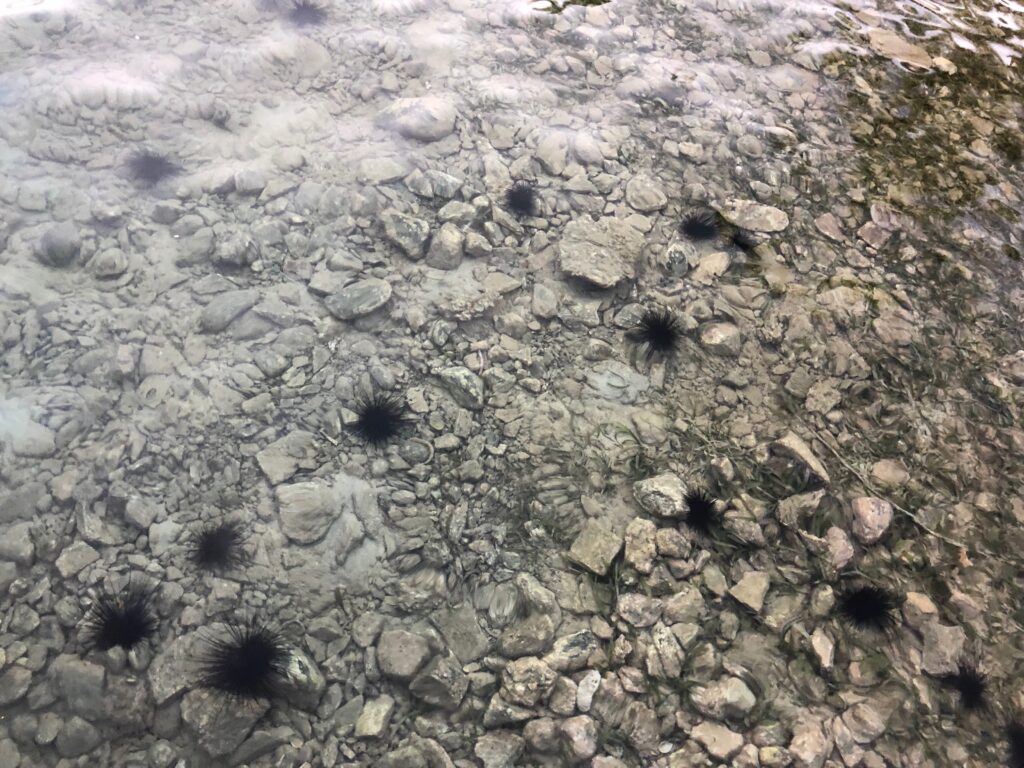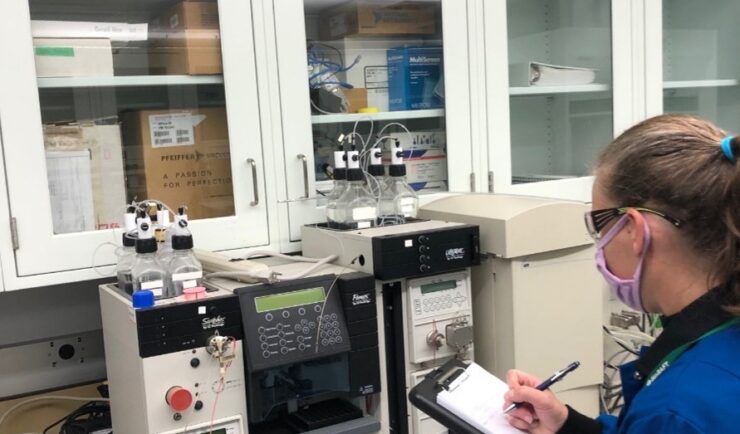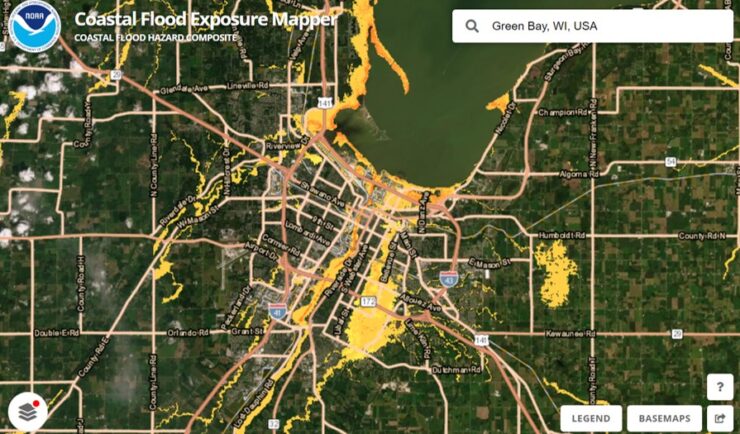

A diver collects a long-spined sea urchin. Credit: Blake Gardner
Our employee owners were recently part of a team of detectives on a mission to discover the killer of long-spined sea urchins, Diadema antillarumy, throughout the Caribbean Sea. The infected urchins lose their spines, leaving them more vulnerable to predation or dying after a few days. In 1983 the same species experienced mass mortality with identical symptoms, but scientists were unable to discover the culprit. Forty years later, the issue resurfaced, and a team of scientists joined forces to unlock the mystery.
CSS employee owners, supporting NOAA’s Coral Reef Conservation Program and NOAA’s Office for Coastal Management, joined a team of scientists in diving to collect urchin samples at 23 sites around the Caribbean Sea. By providing the samples, the researchers were then able to examine and test the urchins and compare them to healthy urchins to determine the cause of the mortality.
Due to this rapid response, scientists determined the cause of the issue within three months
Our staff coauthored this paper documenting the process. https://www.science.org/doi/10.1126/sciadv.adg3200

Researchers examine a long-spined sea urchin. Credit: Leslie Henderson
See More CSS Insights

Assessing Methylene Chloride Levels in Laboratories
CSS employee owners supporting the University of Kentucky have started sampling campus laboratories with high use of methylene chloride to assess levels of employee exposure. This effort is in response to the Environmental Protection Agency (EPA) issuing methylene chloride regulations under Section 6(a) of the Toxic Substance Control Act in the Federal Register on May…

Expanding a Popular Flood Exposure Tool
We recently assisted our client, the National Oceanic and Atmospheric Administration’s (NOAA) Office for Coastal Management, with updating one of their most popular tools, the Coastal Flood Exposure Mapper.

CSS Employee Owners Receive NOS Team Member of the Year Awards
Congratulations to two CSS Employee Owner who received a National Ocean Service (NOS) Team Member of the Year Award for their dedication and hard work over the past year. One employee owner received an NOS Team Member of the Year Group Award as part of Team Lynker, the prime contract company with NOAA’s Office for…
